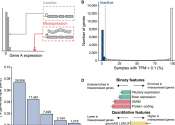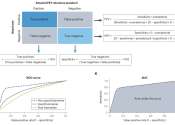Short-term vegan diet associated with reductions in biological age estimates
Eating a vegan diet for eight weeks is associated with reductions in biological age estimations based on levels of DNA methylation—a type of chemical modification of DNA (known as an epigenetic modification) that alters ...
Jul 28, 2024
0
396









